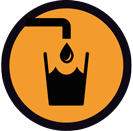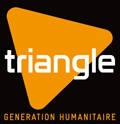AREA OF EXPERTISE

Water, hygiene and sanitation

AREA OF EXPERTISE

Water, hygiene and sanitation
FUNDING
Since 2016, many IDPs and refugees have returned to Central and West Darfur (106,432 people and 4,745 returnees identified and registered by IOM in 145 localities in the first half of 2017). Moreover, UNHCR estimates there are 319,610 confirmed Sudanese refugees in Chad who could return to their country of origin at any time. The resulting new basic needs would significantly increase the pressure on existing resources and services.
In order to address the issue of access to safe drinking water in sufficient quantity and quality and tensions between host communities and returned or displaced populations, TGH will restore, upgrade and expand existing water supply systems and cover the operating costs of restored or upgraded emergency water networks. In order to reduce dependency and build community capacity, TGH will train the members of water user committees on the repair, maintenance and restoration of water points, and provide spare parts kits and toolboxes. Training on water supply management and cost-recovery system – the effectiveness of the training will be ensured by the sharing of lessons learnt and good practices through meetings between existing and new water committees – will enhance the long-term impact of these activities.
Latrines will be built, especially for displaced and returned populations facing the highest sanitation-related risks due to the lack of sanitation infrastructure, in order to reduce the risk of contamination of water sources and thus improve the health of the population.
Finally, TGH will train local volunteers to raise awareness on good hygiene practices among their own communities in order to sustainably reduce the incidence of water and sanitation-related diseases. The impact of this essential activity on population’s behaviour will be measured through surveys, one carried-out at the beginning of the project and one at the end.
Contents and designations used here are TGH’s responsibility and do not necessarily reflect the views of USAID or the government of the United States.